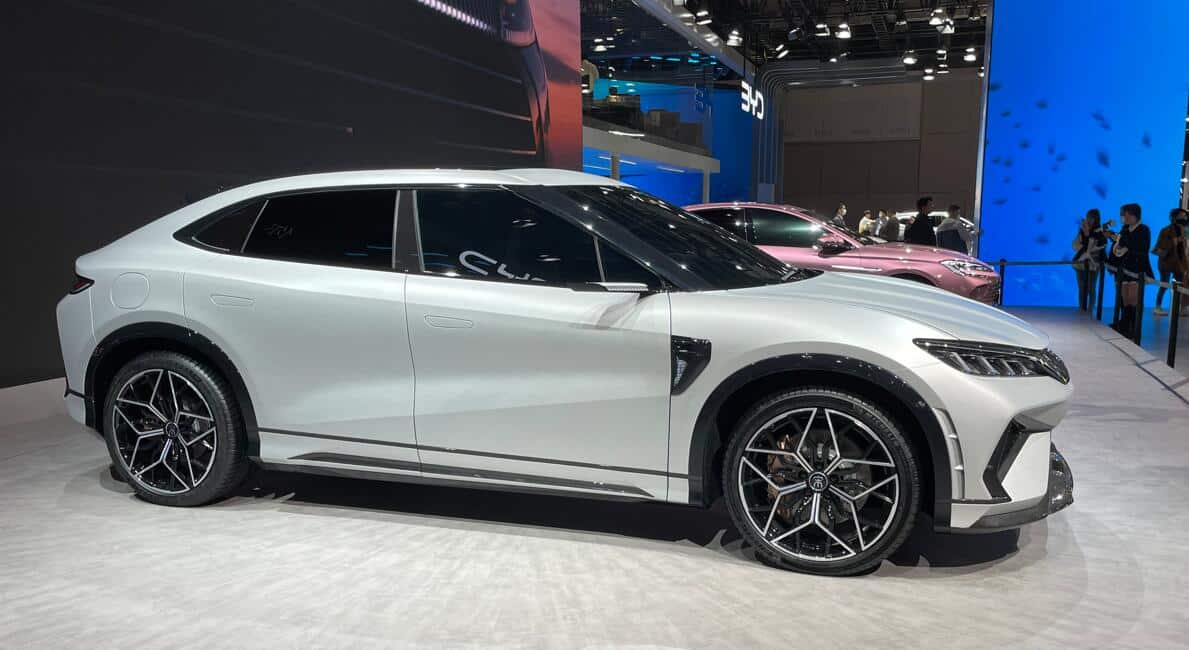Western Europe is a traditional stronghold for international carmakers, and it's difficult for Chinese brands to stand out, TrendForce said.
(Image credit: CnEVPost)
Chinese brands are expected to increase their share of the Western European new energy vehicle (NEV) market to 9 percent in 2023, up from 6 percent in 2022, market research firm TrendForce said in a report today.
SAIC's MG is the dominant Chinese brand in the Western European NEV market, according to the report.
Chinese exports of NEVs are primarily aimed at Western European countries with clear timetables for phasing out fuel vehicles, as well as Southeast Asia, especially Thailand, where penetration of such vehicles is low, TrendForce noted.
Western Europe is the home base of traditional international car manufacturers, and it is difficult for Chinese brands to stand out, the report said.
However, it is worth noting that Chinese NEVs emphasize high cost-efficiency and intelligence, and affordable electric vehicles can meet demand against the backdrop of high inflation facing Western Europe, TrendForce said.
In Southeast Asia, where Chinese brands entered early, the number of NEVs here is small, in the tens of thousands range, but the share of Chinese brands is high, the report said.
In 2023, the market share of Chinese brands in the Southeast Asian NEV market is expected to rise to 63 percent from 52 percent in 2022, TrendForce said.
This is a major concern for Japanese brands, which have long had a high market share in the Southeast Asian auto market, the report said.
Entering new markets requires a significant investment of resources, including the establishment of showrooms, after-sales maintenance service systems, charging infrastructure and compliance with local regulations.
Therefore, how to maintain price advantages while adding additional costs will be key to the success of Chinese auto brands overseas, according to TrendForce.
China's NEV industry developed early and has advantages in supply chain, productivity, cost-effective lithium iron phosphate (LFP) battery technology and production capacity, the high report also noted.
Chinese battery makers have layout in global upstream lithium resources, so their cost control and component supply stability are higher, becoming an advantage for Chinese car manufacturers when expanding overseas markets, the report said.
NEVs accounted for more than 25 percent of China's auto exports in the first quarter of 2023, and NEVs will be the focus of future expansion into overseas markets, TrendForce said.

